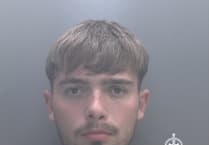Letter to the Editor: Having worked in the Brecon Beacons National Park (BBNP) for over 45 years I have had countless emails and phone calls from furious tourism operators concerning the rebranding of the Brecon Beacons National Park to just the Welsh name — Bannau Brycheiniog – which translates as the Peaks of Brychan’s Kingdom.
Brycheiniog refers to the old kingdom of King Brychan roughly the same region as the present National Park Authority boundaries.
All the people who have contacted me clearly state that they have no quarrel whatsoever with using Welsh names.However, if the National Park had continued to promote both the Welsh and English translation for the Brecon Beacons National Park most would have been contented.
Some years ago, the Wales Tourist Board in an extensive national survey asked people what were the top names that they associated with Wales. Snowdonia National Park, Pembrokeshire National Park, Brecon Beacons National Park, came up as the top three names most people associated with Wales in this survey. For the Welsh tourism industry to have the established name of Brecon Beacons National Park is an ‘iconic marketing tool’ universally known and without doubt the name gets the attention of millions of people who might be thinking of visiting Wales.
Even the Prime Minister has commented that the name is universally known!
This park authority have always had an uncanny knack of upsetting local people with their attitude that they are the ‘elite’ and always knowing what is best for the locals.
The decision to change their name to just Bannau Brycheiniog was done with no tourism consultation.
The park authorities now have a major ‘ modern day moral dilemma’ in promoting the name Brycheiniog, as in part it refers to a fifth-century king of the region called King Brychan, and the word Brycheiniog refers to his Kingdom. King Brychan was born in Ireland, the son of an Irish Prince in 419 AD, and had a Welsh mother.Historical records state that he grew up to be a ruthlessly fierce warrior and would collect his enemies’ dismembered limbs after a battle and display their chopped up remains as trophies!
However, Welsh history records that King Brychan of Brycheiniog has really only one very dubious claim to historical fame. The king was in fact a ‘notorious lecher’ who prayed on the women of his Kingdom and may have fathered up to 63 children!It is recorded that he even raped the King of Powys’ daughter whilst being held hostage, and had three or four wives, but their fate is not recorded.In old age King Brychan abdicated his throne and became a hermit probably due to being sexually exhausted?
Therefore, promoting the name Brycheiniog as part of the parks new rebranded title may not be wise as it is so closely connected with a sexual predator, and this name may also upset the residents of the park as who would want their national park associated so closely with a rapist, and a King with such an appalling record regarding his treatment of women? Should the park authorities want a logo in the future reflecting King Brychan’s only attribute to fame, may I suggest instead of employing a rebranding consultant, as they did to come up with the new rebranded name for the park, I will not charge them for my suggestion for a logo that will be remembered forever by the inhabitants of the park and symbolise the standing off the Bannau Brycheiniog Authority.
The only possible logo for this park authority should in fact feature a ‘male erect phallus’ in tribute to King Brychan, for his amazing feat of fathering 63 children in his kingdom of Brycheiniog.Just imagine how tourists would gaze up in wonderment seeing a giant King Brychan phallus sitting on top of the Bannau Brycheiniog National Park Headquarters!
It is even possible that Wales could see a tremendous increase in visitors coming from all over the world wanting to see this symbolic symbol of lecherous old King Brychan being displayed so proudly by the national park in his old kingdom of Brycheiniog!
Ashford Price,
Chairman,
Dan Yr Ogof,
The National Showcaves Centre for Wales Editor’s note: It’s a good job you can’t libel the dead. How do you say ‘take a chill pill’ in Welsh?




Comments
This article has no comments yet. Be the first to leave a comment.